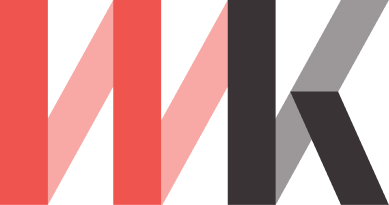weKnow is a fully distributed company, something we proclaim loudly and proudly to our partners and potential clients when engaging with them. It’s a characteristic that gives us the competitive edge because it highlights weKnow’s core values and the character of every individual that works at here.
I decided to write this because our clients are always amazed by how seamless our operations and projects run. They always seem amazed by the fact that we span 12 countries and cover 6 time zones, yet seamlessly integrate into their projects from kickoff to completion without a hitch. This is how we keep things running smooth…
Happy Accident
Back in 2013, working remotely was a benefit tied to tenure and seniority. Qualifying employees got to work from home 2 days a week and everything was working smoothly. However, we were one day shocked to receive an eviction notice from our landlord. Turns out he was renting the space to us without a business permit and the authorities were shutting down his operation. At that point we had been thinking about going full remote for some time, so we just took advantage of the opportunity and made the jump to a fully distributed model.
It’s been 4 years since we started perfecting the methodology, certainly learning through our mistakes and making adjustments especially because we moved from a local team to a globally distributed team. While he administrative complexities can be burdensome, they are easily overshadowed by the sheer quantity of talent at our disposal.
There are three pillars that we’ve identified necessary to make the distributed team actually work, those pillars are:
Hiring A Distributed Team
The key driving factor that led us to global distribution was to expand our scope for talent acquisition. Not all potential candidates are suitable for a globally distributed system. Most prospects are attracted to the concept of managing their own time and location, but are not prepared to handle the responsibilities. We often quip the quote “with great power, comes great responsibility”, while talking to prospective employees.
Our personality interview includes questions related to self-Motivation, strong communication skills, attention to detail and enthusiasm to determine if a candidate is suitable for a remote position.
Here’s an old post from Recruiter.com that best summarizes the personality types suitable for virtual work.
Communication
Lack of communication leads to conflict and mistakes, that’s why while working remote, everyone should maintain healthy communication with all teams, both internally (within the company) and externally (client teams).
We place a lot of emphasis on ‘raising your hand’ when help is needed, having a hero complex in a distributed system leads to a loss of time and ROI potential. Nobody should stay up all night fixing what would take another, more experienced team member, five minutes to address or advice.
Managing A Distributed Team
weKnow is a horizontal organization, all decisions and challenges are addressed at the same level. But this also means that all employees, despite seniority, have direct access to anyone in the organization. This enhances the team’s problem solving capacity and facilitates team-wide adoption of the solutions.
For instance, we standardized holidays throughout the company, that means that whether you’re based in Argentina or France you still take the 12 holidays of the Costa Rican calendar, as a reference and because that’s our baseline. Individuals can trade holiday days but as a default, we all share the Costa Rican holidays.
One challenge that proved to be a struggle was finding a Time Tracking and Resources Administration tool. We pretty much tried them all but they all had either too much for our needs, or just weren’t a fit.
We decided it was time to have our own custom fit web application to handle Time Tracking, Resources, Skills, Requests, Prospects, and many more in a way that it syncs with our company’s style and personality. We even made it a cool internal project where developers transitioning to a new client could help out. It was built in React, MeteorJS and MongoDB which was very attractive challenge to our team, because they were new technologies, thus a learning opportunity.
One of the features that I like the most about ‘KeepTrack’, our tool to track pretty much everything at weKnow, is the ‘Skills feature’, where people input their skills as well as rate how much experience they have on that skill. Additionally, that same feature is a place where we have our technology radar for the skills our team has but also the ones that we lack of or should invest for the near future.
This is already helping our Capabilities team identify who’s best suitable for an upcoming project without having to ask our IT team. The ‘technology radar’ feature, is helping our team learn about technologies that are taking off so they can focus on learning these frameworks or languages.
Our Tools For Managing A Distributed Team
Here’s the mix of tools we use to make this work:
- Chat: Flowdock
- Files/Docs: Google Drive
- Meetings: Google Meet
- Quick Meetings: Appear
- Resourcing Tetris: Resource Guru
- Internal Wiki: Gitbook
- Time Tracking: KeepTrack (custom tool)
- Hiring Process: KeepTrack
Hope you can find this article useful. If you already have a distributed team, this might help you improve the model, and if you are thinking about implementing it, then you certainly can make good use of one or two tips.
Please comment or reach out if you have any questions or would like us to expand on a specific aspect of managing distributed teams.
